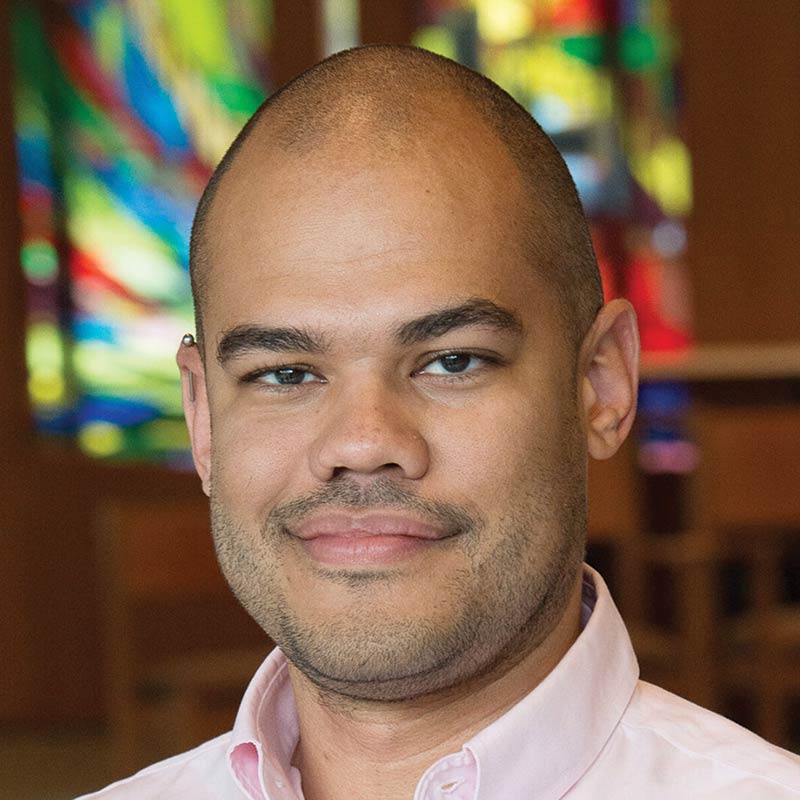Marvin Wickware: Equipping Leaders for Public Church

Dr. Marvin Wickware, Associate Professor of Church and Society and Ethics at LSTC, is creating an exciting learning resource for Project Starling, LSTC’s new online theological education platform. His resource builds on the core principles of the public church curriculum, which emphasizes the integration of church and society, calling students to understand themselves as leaders who engage with their communities for the common good.
Dr. Wickware shares insights into the resource he’s developing, how it equips learners with practical tools for transformative leadership, and how Project Starling broadens access to theological education beyond traditional seminary walls.
Tell us about the resource you are developing for
Project Starling.
The module I’m developing is based on the Public Church course I teach, which focuses on helping learners understand that the church and broader society are intimately connected. The church doesn’t exist in isolation; it’s part of the world, and the world’s gifts and challenges flow into the church. If the church isn’t engaged with the surrounding community, there’s something wrong. This learning resource equips learners with tools to understand that relationship and develop leadership skills to seek justice and transformation in their communities.
What are the key themes of this resource?
There are three main elements. First, we explore the idea of the church as part of society—how it interacts with the world, takes on its struggles, and shares its gifts. Second, the module helps learners understand themselves as public church leaders. Whether or not they are in formal leadership roles, they are responsible for the well-being of their communities. Third, we give them practical tools, such as ethnographic observation and community organizing methods, to identify needs in their community and work toward meaningful change.
Who do you envision as the audience for this resource?
The course is for anyone who understands the church as a potential force for good but isn’t sure how to connect that vision to action. It could be longtime pastors seeking tools to engage their congregations in community work, or organizers who aren’t necessarily churchgoers but want to partner with churches in social change efforts. It’s also for laypeople who want to understand what leadership looks like outside of formal church roles. My hope is that all of these learners will understand themselves as capable leaders in bridging the gap between church and society.
How does this resource fit into the larger vision of Project Starling?
This resource is foundational for Project Starling because it’s all about understanding the community you’re in and figuring out what work the church should be doing there. Project Starling broadens access to theological education, so learners don’t need to be in a traditional seminary setting to benefit. This resource is highly practical and allows learners to integrate their other studies—whether it’s New Testament, spiritual formation, or church history—into real-world contexts for transformative action.
What excites you most about being part of Project Starling?
I’m excited about the opportunity to reach a broader audience beyond the students who enroll in my seminary classes. Through Project Starling, we can connect with people who might not have the time or resources to pursue a traditional degree but still want to be part of the church’s transformative work in society. I’m also excited about working with instructional designers from Noodle, who bring fresh perspectives on how to teach these concepts in a more engaging and measurable way. It’s been great to refine my teaching approach and make it even more effective.
How do you see Project Starling advancing the mission of the public church?
The Public Church curriculum was always about taking the walls off the church and connecting it with the community. Project Starling takes that mission further by making theological education accessible to as many people as possible. It allows us to expand the reach of these ideas and equip more people to engage in the work of justice, advocacy, and community transformation. In many ways, it feels like we’re living out the mission of going out into the world and preaching the gospel in a very practical, relevant way.